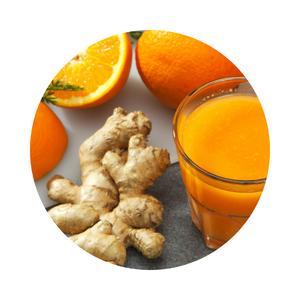Grapefruit juice affects more than half of all medications. With some medications, you cannot ever drink grapefruit jucie. With others, you can drink limited amounts if spaced several hours after taking the medication. Make sure to read the interactions information of any medicine carefully. What often happens is that active compounds of grapefruit juice reduce the efficiency of digestive enzymes. This leads to much higher amounts of medication being absorbed into the body, leading to a possible overdose.
- Grapefruit juice strongly interacts with many high blood presure medications including felodipin, nifedipin, and eplerenon. It can lead to greatly reduced blood pressure and can be life threatening, especially in people with weak hearts or harening of the arteries. But it isn't true for all high blood pressure drugs. For example, grapefruit juice reduces the effects of losartan.
- Be especially careful with statin drugs used to treat high cholesterol. Grapefruit juice interacts strongly with simvastatin, lovastatin and atorvastatin. According to studies, one glass of juice increases these drug's potency by up to 250%. Other statins, such as rosuvastatin, fluvastatin (Lescol) and pravastatin are safe to take with grapefruit juice.

In addition, be sure to check for contraindications when taking medication for the following conditions:
- heart rhythm disorders (including amiodaron, chinidin, dronedaron)
- allergies (some corticosteroids and antihistamines, such as fexofenadin)
- pain (including fentanyl, oxycodon, kolchicin)
- anxiety and depression (benzodiazepamines, sertralin, buspiron a more)
- asthma and COPD
- blood clotting asthma and COPD (blood thinners with certain active substances, eg apixaban, rivaroxaban, clopidogrel, ticagrelor)
- enlarged prostate (including tamsulosin)
- cancer
- epilepsy (Carbamazepine)
- erectile disfunction (Viagra)
- HIV / AIDS
- thyroid disorders (levothyroxin)
- viral, bacterial, and fungal infections (antivirals, antifungals, antibiotics)
- cough (dextrometorfan)
- contraceptives (hormonal contraceptives; it's usually recommended to wait at least 5 hours after taking the pill before consuming grapefruit juice)
The list is not complete but at the same time it doesn't mean that you must completely exclude grapefruit juice. The severity of side effects increases with age and with higher doses of medication. It also depends on the enzyme levels in the intestines and the amount of juice drunk. If you do not want to give up grapefruit juice for good, talk to your doctor. Depending on the situation, you may be allowed a limited amount. Or a doctor can recommend a time interval between taking the medicine and drinking the juice, or prescribe a reduced dose the day you drink the juice. However, with some medications grapefruit consumption is completely not allowed.
The effect of drugs is also influenced by other citruses, albeit less intensely. For example, lemon juice increases the effect of high blood pressure medication by 25%, orange juice by 32%.





